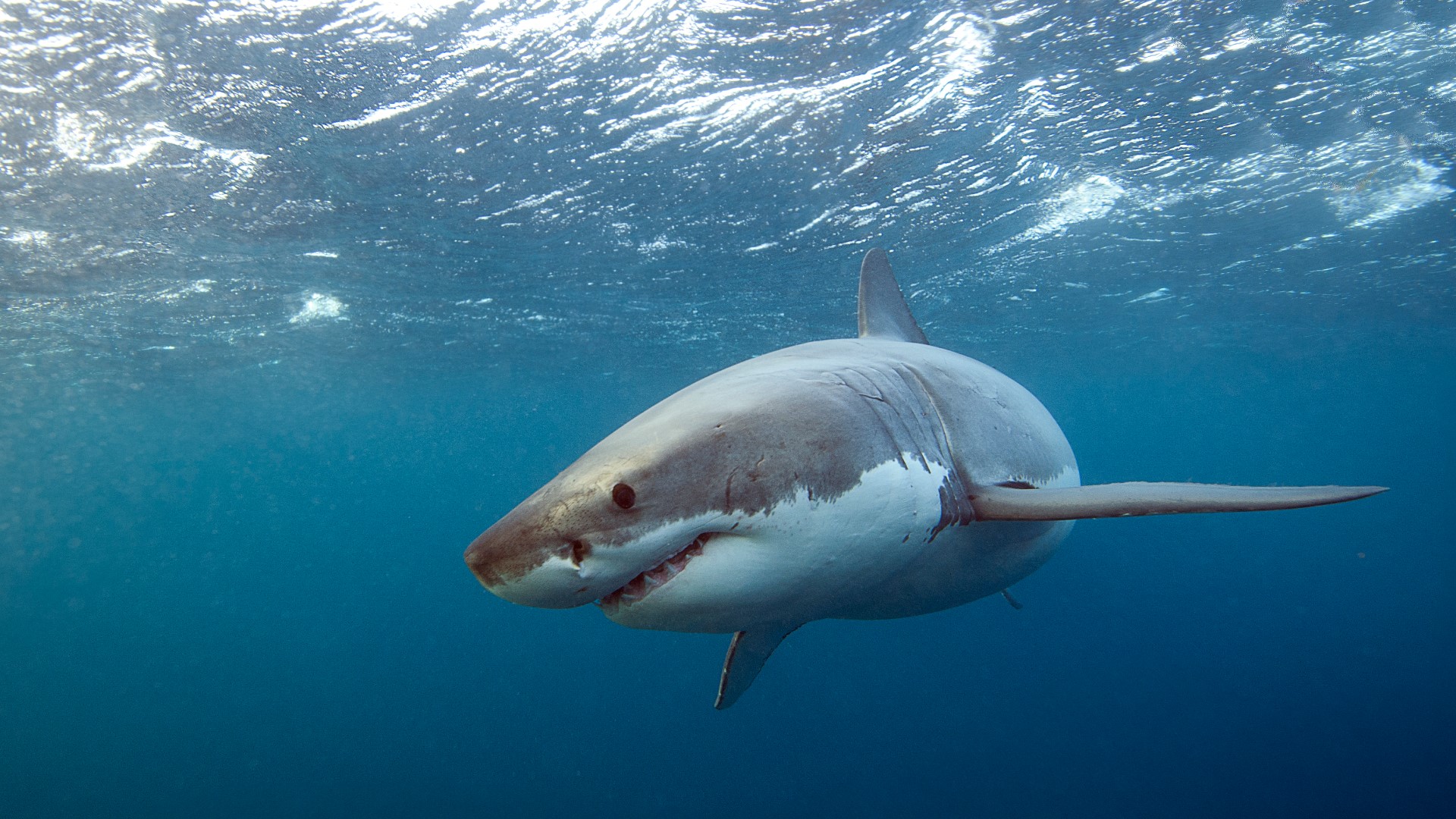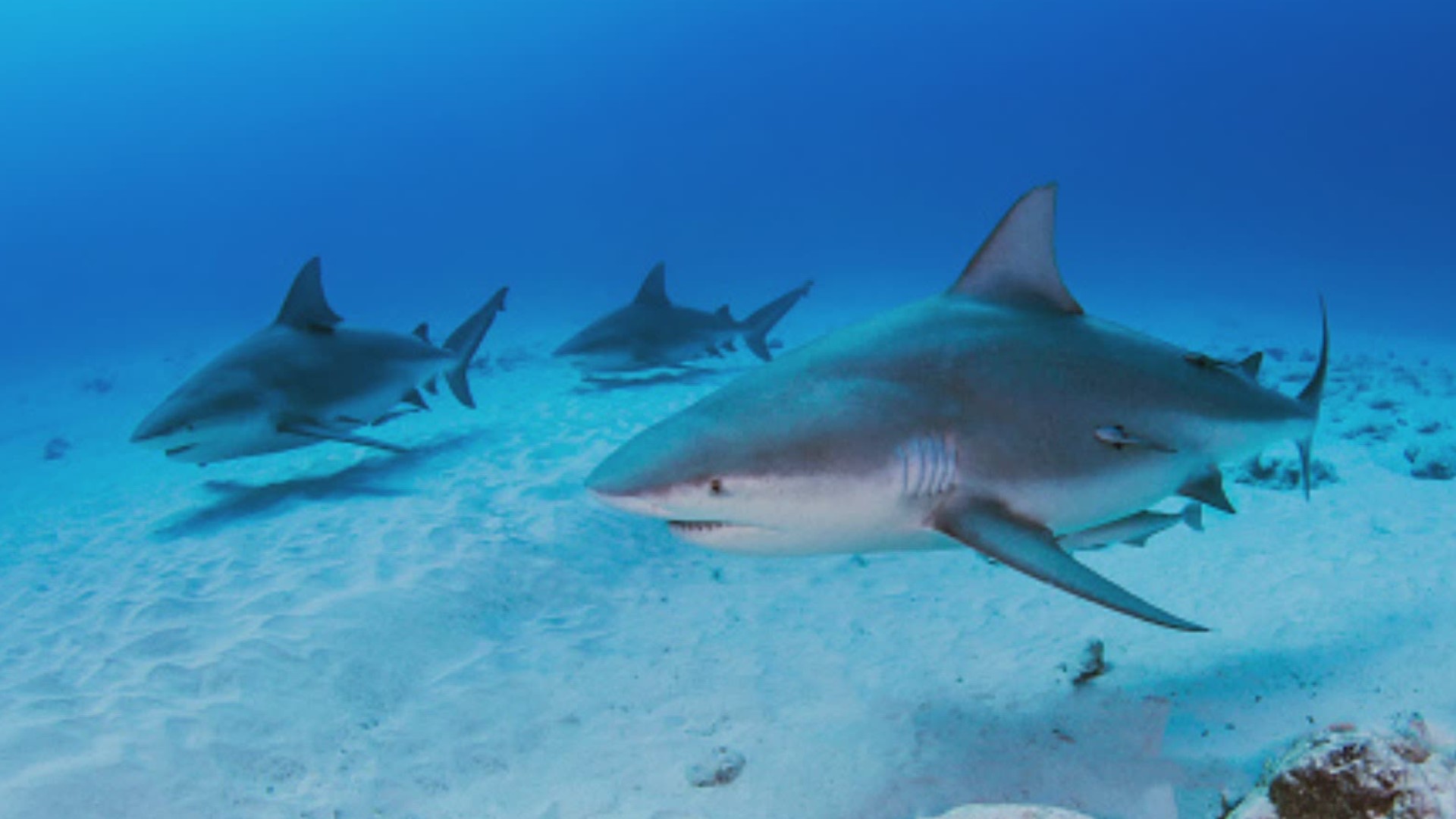MAINE, Maine — Maine's first deadly shark attack happened two years ago this day.
Dr. James Sulikowski is among the shark experts and marine biologists who want to remind Mainers these kinds of attacks are very rare.
The sharks we see in Maine waters are here looking for food, he said.
There are a lot of seals off the coast, which makes the area attractive for the sharks to stick around during their peak season, which is typically lasts from June until November.
"Maine has a great seal population. It's large. And that's what these white sharks are eating," he said. "When there's lots of competition around certain areas, it's natural for those sharks to look in different areas. That could be one reason that they are up in this area."
The normal beachgoer shouldn't be be worried while swimming in the Maine close-to-shore sea waters, he said, but he also provided several simple yet important tips:
- Don't go into areas that are deep and off-shore
- Don't swim in those areas right
- Don't swim where there are seal haulouts
- Don't wear shiny objects
- Don't swim at dawn and dusk
- Pay attention to lifeguards
- Don't swim near schools of fish
- Don't wear black wet suits or bathing suits
"Our actions in the water produce vibrations, and those vibrations mimic those of a hurt or sick animal," Sulikowski said. "Even the best swimmer produces those. So when we could that with something that might look like a food item, particularly for white sharks, that really can spell trouble."
The shark expert said there have always been sharks in our waters, but now there are more resources for tracking them. And it's important to note that an increase in shark detections doesn't necessarily mean there are more sharks in Maine this year. Scientists are more aware nowadays of their behaviors and trends, thanks to more shark research.
Sulikowski said he sometimes sees sharks closer to the shore because of what they are eating, their food sources.
Sharks move all year round, so it's hard to tell if there are actually more sharks in Maine waters, he explained.
"We have more scientific research going on, which also provides information about the sharks that are there. We are more aware. Are there more sharks there than a few years ago? I mean there are a lot of seals, and it makes sense for those sharks would look for resources. Over the years we have seen more sharks from Cape Cod move into Maine, but a lot of it has to do that we have more research going on," Sulikowski said. "If an interaction occurs, it's not because a shark wants to attack you. It's because they want to eat and make a living. Sharks need that space. We need to take precautions."
Sulikowski said people shouldn't blow anything out of proportion.
"If you look at the incident rates across the board, the chances of anyone interacting with sharks are extremely low," Sulikowski said. "Humans are coastal. We love being on the water but we don't belong in the water. Sharks belong in the water. We need sharks to balance our ecosystems to keep things in check... with that in mind we have to really understand that if we want to go in the ocean, we have to respect their areas."


